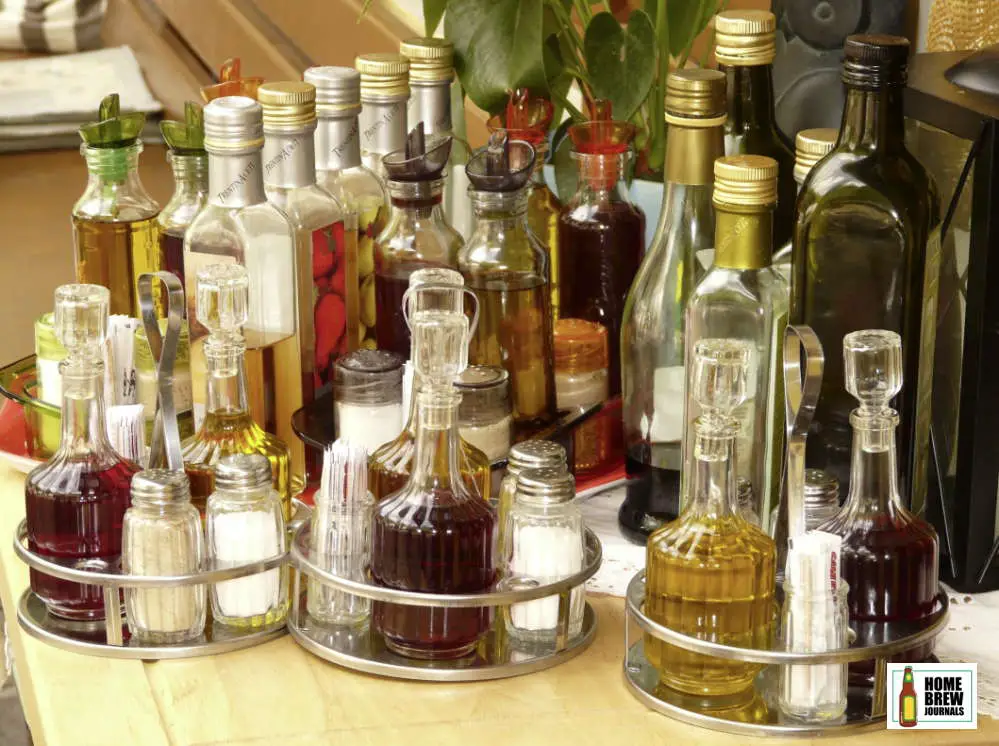No matter how many times you’ve made beer in the past, it’s always exciting when you open the first bottle from a new batch. Will the hop aroma be as good as expected, will it be cloudy, or will my homemade beer taste like vinegar?
We all make a bad batch of beer at one time or another. When this happens, you just have to put it behind you and move on. If possible, you should try and work out what went wrong so that you can avoid it happening again.
The vinegar taste is caused by a bacteria called acetobacter, which converts alcohol into acetic acid. To stop this from happening, you should ensure that your brewing equipment is thoroughly sanitised and prevent oxygen from coming into contact with the beer when transferring and bottling.

Why does homemade beer sometimes taste bad?
Homebrew can taste bad for several reasons including; contamination by bacteria or wild yeast, fermenting too warm, over sparging, exposure to sunlight, pitching too much yeast, cooling the wort too slowly after the boil and oxidation.
By far, the most common cause of bad tasting beer is a bacterial infection, which is why so many homebrewers are rightfully obsessed with sanitation.
What makes homemade beer taste like vinegar?
The vinegar taste is caused by a combination of two factors; inadequate sanitation and oxygen. In the presence of oxygen, the acetobacter bacteria converts alcohol in the beer into acetic acid, making it taste like vinegar.
How to stop your homemade beer from tasting like vinegar?
Acetobacter is naturally present in the air and you should be especially careful during the summer. Fruit flies carry acetobacter and, as their name suggests, are attracted to over-ripe fruit.
In fact, the flies aren’t so much attracted to the fruit itself as to the alcohol created as it starts to ferment. As you can imagine, they are also attracted to the mixture of alcohol and sugar in beer as it ferments.
Fruit flies aside, the best way to prevent your beer from tasting like vinegar is meticulous sanitation. Ensure you clean and sanitise everything that comes into contact with the wort after it has finished boiling.
Thoroughly clean and sanitise the fermenter, paying particular attention to the spigot and the inside of the lid. If you use an auto-siphon, you should completely disassemble it for cleaning. It’s also a good idea to fill the airlock with sanitiser. If any fruit flies or other bugs get in, they will be both drowned and sanitised.
You should also take care not to introduce any oxygen into the beer when transferring it from the fermenter.
If you use a secondary fermenter for conditioning or dry hopping, be sure to siphon the beer carefully using a sanitised tube which reaches right to the bottom of the second vessel and fill from the bottom upwards. If using an auto-siphon, make sure the seal between the two parts of the siphon is good. Otherwise, bubbles might be introduced into the beer during siphoning.
If you bottle directly from the fermentation bucket, you should spray the spigot with plenty of sanitiser before bottling. Make sure that the sanitiser gets right up inside the tap.
You should also take care not to aerate the beer when bottling. It’s a good idea to use a bottling wand that fills the bottles from the bottom upwards, minimising oxygen contact.
Is it bad to drink beer that tastes like vinegar?
A small amount of acetic acid is present in all beers; if the vinegar taste isn’t too bad, you may decide to go ahead and drink it anyway. The beer might not taste as you expected, but it’s still safe to drink. If your friends ask about the odd taste, you could always tell them that you’re experimenting with a new sour beer recipe 😉
You should bear in mind that the vinegar taste will probably get stronger over time and that, after a few months, you will probably end up with bottles of pure vinegar.
If the vinegar taste is too strong, it’s probably best to ditch the entire batch. Alternatively, you could use some of it to make beer vinegar, although you probably won’t need twenty litres of it.
How to stop your beer from tasting like vinegar again
At this point, you must eliminate all traces of bacteria from your equipment before brewing another batch. If not, there’s a reasonably good chance that you’ll end up making vinegar again.
You should pay special attention to hard to get places, fully disassemble the spigot of your fermenter, disassemble your auto-siphon etc. Take extra care when sanitising your bottles and double-check the crown caps before you use them. I even dip my hand in the sanitiser solution to be on the safe side, although this may be inadvisable if you have sensitive skin. Anything which comes into contact with the beer could be a source of bacteria.
If you use a plastic fermenter and it’s starting to look a bit scuffed or scratched, it might be a good time to purchase a new one.
You should also ask yourself how the oxygen got into the beer, is there anything that can be improved? Even if there are no bacteria present to create acetic acid, you should still try hard to avoid oxidation which can make your beer taste like wet cardboard.
Does beer turn into vinegar?
So far we’ve discussed why beer turns into vinegar and how to stop this from happening.
You might be surprised to learn that in some areas of Europe they deliberately turn beer into beer vinegar which they then use for cooking.
In fact, malt vinegar, which we Brits put on fish and chips, is basically made from a kind of hop free ale that then undergoes a second fermentation process to turn it into vinegar.

